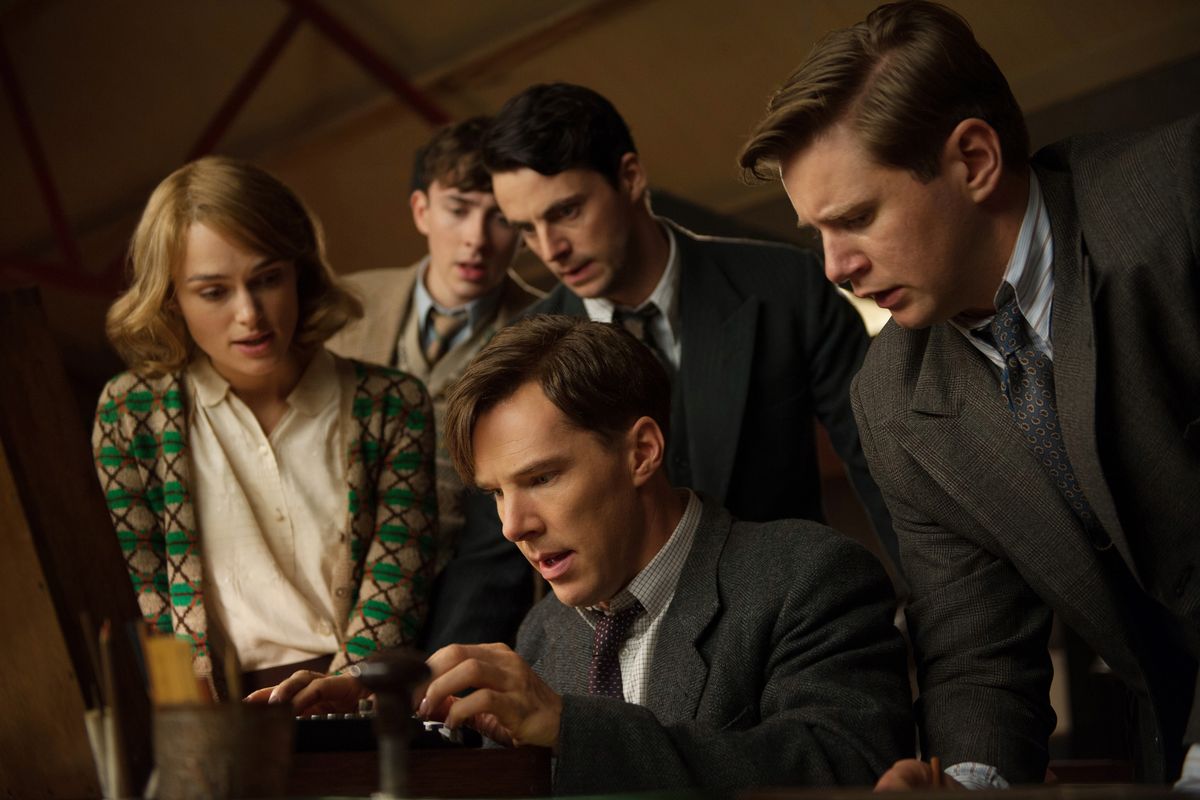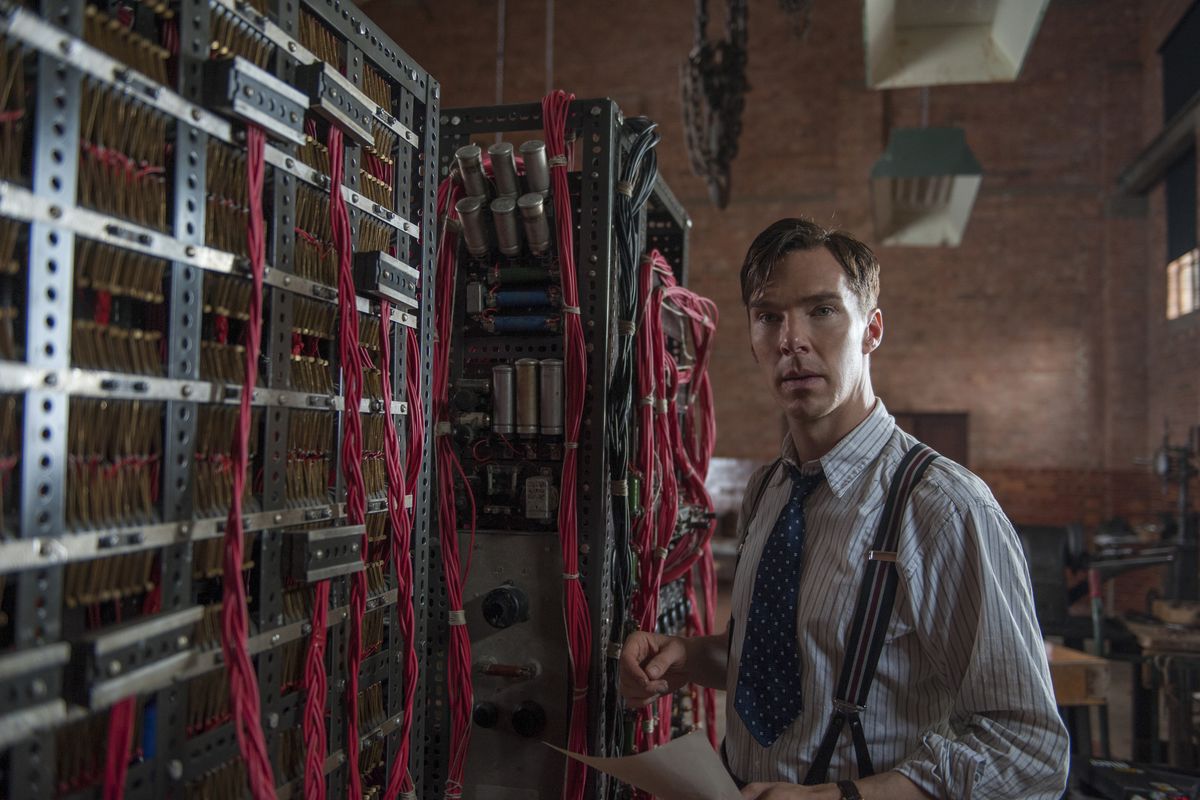Revisiting ‘The Imitation Game’ on Alan Turing’s birthday
Keira Knightley, Matthew Beard, Matthew Goode, Benedict Cumberbatch and Allen Leech star in “The Imitation Game” (2014). (The Weinstein Co.)
Born June 23, 1912, legendary English mathematician, computer scientist and cryptanalyst Alan Turing is best-known today for successfully cracking “the Enigma code,” a sophisticated cipher used to encrypt internal communications between military officials in Nazi Germany.
Based on “Alan Turing: The Enigma,” Andrew Hodges’ 1983 biography, “The Imitation Game” (2014) is director Morten Tyldum’s dramatized account of Turing’s (Benedict Cumberbatch) life up to and following his monumental work on Enigma and his resulting contributions to the invention of the modern computer.
In England’s darkest hour, military intelligence had begun recruiting cryptographers right out of university to aid in forming a top secret code-breaking unit stationed in Buckinghamshire’s Bletchley Park.
“Agnostic about violence” but determined to try his hand, Turing sets off to join the fight in his own way. Appearing from the outside to be nothing more than an ordinary rural factory, Bletchley houses a British counterintelligence unit charged with what is likely Britain’s best chance at survival.
“Enigma,” Turing says, finally grabbing Bletchley overseer Commander Denniston’s (Charles Dance) attention. “That’s what you’re doing here … you’re trying to break the German Enigma machine.”
“What makes you think that?” Denniston says.
“It’s the greatest encryption device in history, and the Germans use it for all major communications,” Turing says. “If the Allies broke Enigma – well, this would turn into a very short war indeed.”
But before he can really dive into cracking the code, Turing has to overcome his bluntly abrasive personality, which, the film suggests, tended to hold him back.
Early years at boarding school taught him to make the most of being alone, but it also instilled an almost unshakeable tendency toward rubbing people the wrong way.
“I like solving problems, Commander,” Turing says. “And Enigma is the most difficult problem in the world.”
“Enigma isn’t difficult, it’s impossible,” Denniston says. “The Americans, the Russians, the French, the Germans – everyone thinks Enigma is unbreakable.
“Good. Let me try, and we’ll know for sure, won’t we?” he responds.
Despite Denniston’s clear dislike for him, Turing gets the job. Initially unimpressed by the other code breakers and determined to do the job on his own, Turing eventually realizes that even his undeniable intelligence might have limits.
With the help of his fellow mathematicians at a top-secret military intelligence unit in Bletchley Park, Turing would save an estimated 14 million lives and shorten the war by more than two years.
But in the face of the British government’s morality laws, particularly those against homosexuality, Turing’s noble work did him no favors. Queen Elizabeth II posthumously pardoned Turing in 2013 nearly 60 years after his death.
“The Imitation Game” won the Academy Award for best adapted screenplay and received a number of other nominations. It is available on YouTube and iTunes.

